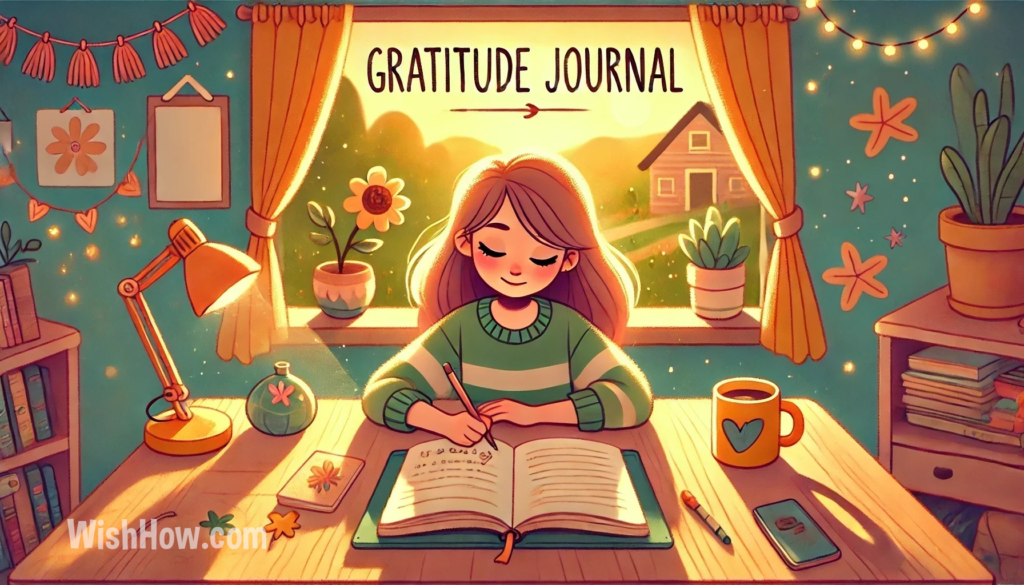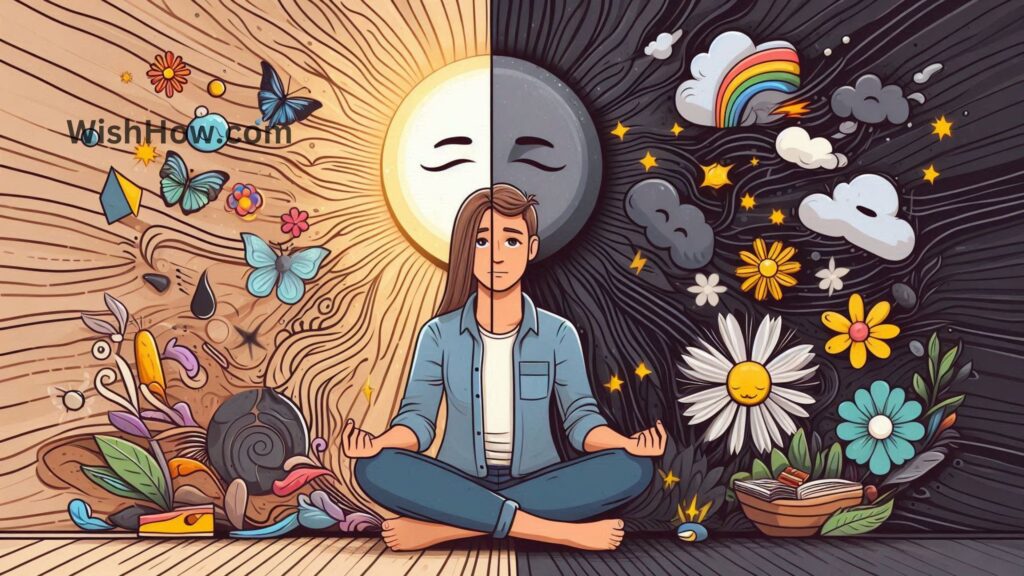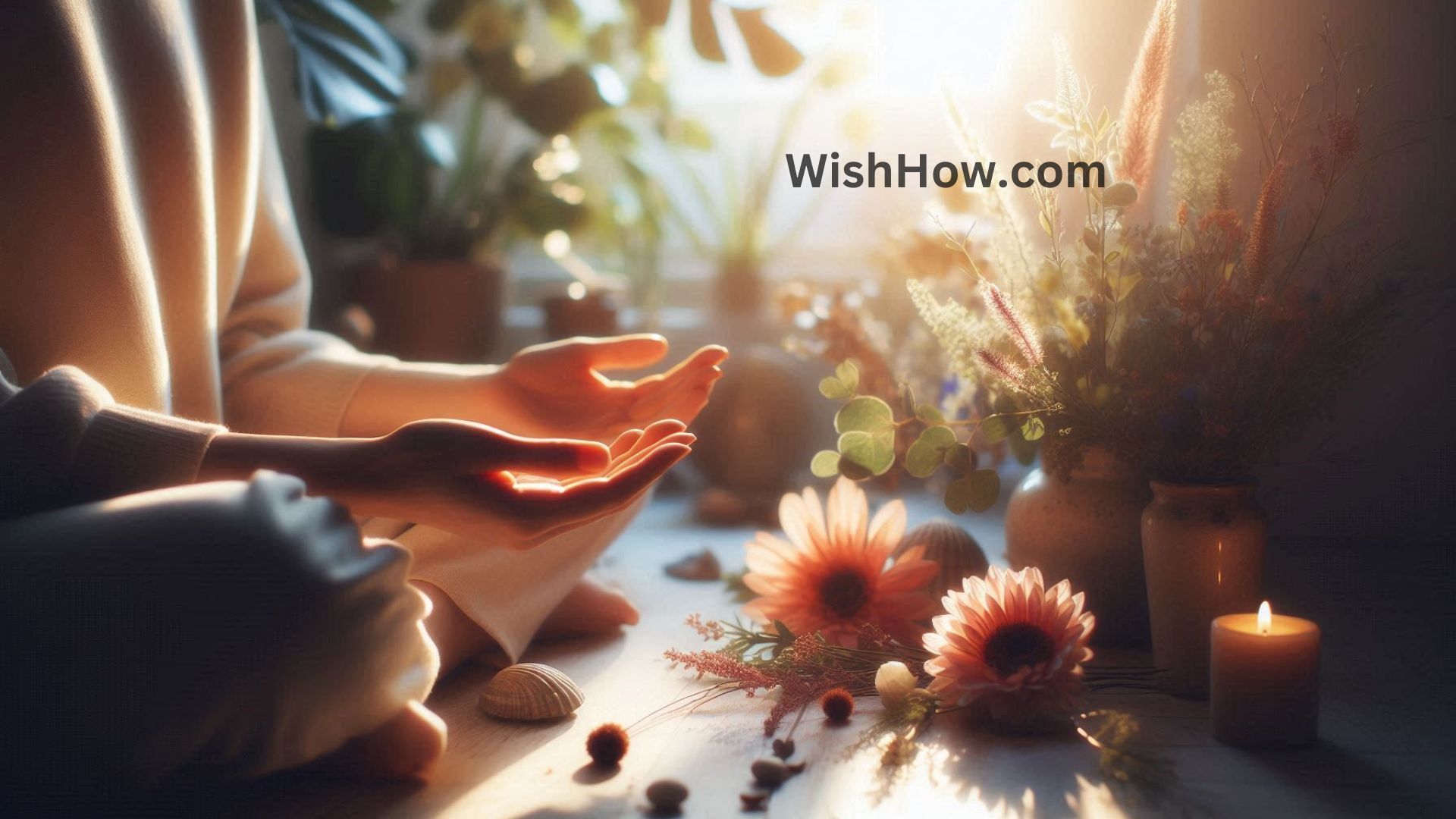Feeling stuck or down in the dumps? It’s tough to shake that gloomy mood sometimes.
When that happens, what do you usually do? Maybe you reach for junk food, shop for things you don’t need, or try to distract yourself in other ways.
Here’s a better, healthier, and completely free way to lift your spirits: practice gratitude.
But you might be thinking, “How can I focus on the good when everything feels so hard?” Don’t worry—we’ve got you covered. In this guide, you’ll learn how to find the silver linings even when life feels heavy. We’ll also dive into why gratitude matters, how to show it to others, and even share some uplifting gratitude videos to inspire you.
And before you go any further, here’s something to brighten your day: you can download our free Gratitude Exercises. These science-backed tools are designed to help you (or your clients) connect with positive emotions and experience the amazing benefits of gratitude.
What is Gratitude – Its Meaning & Definition
Gratitude is a lot like appreciation—it’s about feeling thankful and happy, especially when something good happens or someone gives you a meaningful gift.

The American Psychological Association describes gratitude as that sense of joy and thankfulness we feel when life surprises us in a good way.
Gratitude can show up in two ways: as a momentary feeling or as part of who you are (Jans-Beken et al., 2020). For example, you might feel grateful for something specific at a given moment, or you could be the type of person who naturally appreciates the good things in life.
Dr. Robert Emmons, a leading expert on gratitude, explains it happens in two stages (Emmons & McCullough, 2003):
- Recognizing the Good in Life
The first step is noticing and appreciating the good things in your life. It’s about saying “yes” to life, realizing that, despite challenges, there are reasons to feel happy and fulfilled. Whether it’s a kind gesture or a thoughtful gift, you recognize and feel grateful for what you’ve received. - Acknowledging Where the Good Comes From
Next, you understand that these good things often come from outside yourself—whether from other people, a higher power, animals, or nature. Gratitude grows when we recognize and appreciate those who make our lives better.
Gratitude is also seen as both a personality trait and a temporary state of mind.
- As a Trait: Some people practice gratitude daily as part of who they are. It’s considered a strength and can be nurtured with practice and awareness (McCullough et al., 2002).
- As a State: When someone thanks you, and you feel that warm glow, that’s gratitude as a temporary state (Watkins et al., 2009).
Ultimately, gratitude helps us focus on the positives in life, strengthens our character, and deepens our connections with others. And the good news? It’s a skill you can grow with practice.
Gratitude & Positive Psychology – What is the Connection?
Positive psychology is all about focusing on uplifting thoughts and actions. It emphasizes traits like optimism, hope, and—you guessed it—gratitude (Iodice et al., 2021).

Gratitude is a big part of Seligman’s PERMA model, which highlights five areas for a fulfilling life: Positive Emotion, Engagement, Relationships, Meaning, and Achievement. Gratitude plays a key role in fostering positive emotions (Lianov, 2021).
Dr. Robert Emmons has been a leader in studying the connection between gratitude and well-being. Through his research, he’s shown that practicing gratitude can significantly boost overall happiness and life satisfaction (Emmons & Crumpler, 2000).
Emmons has also explored gratitude in religious contexts, suggesting that being grateful toward a higher power can even improve physical health (Krause et al., 2015). Stay tuned—we’ll dive deeper into how gratitude ties into religion later!
Why Is It Important to Be Grateful?
Passmore and Oades (2016) point out that gratitude seems to be fading in modern Western society as expectations have shifted. Many people now see things like possessions and good health as entitlements rather than personal blessings to be appreciated. As a result, when these “blessings” don’t show up or disappear, feelings like disappointment, anger, and resentment often take their place (Passmore & Oades, 2016, p. 43).
However, gratitude helps us focus on the good things in our lives. It strengthens relationships, fosters hope, boosts life satisfaction, and encourages us to act more kindly and thoughtfully toward others (Passmore & Oades, 2016).
The Importance of Gratitude in Life
Gratitude has a strong connection to overall wellbeing (Jans-Beken et al., 2020; Wood et al., 2010). The benefits of feeling and expressing gratitude are almost endless.
Mindfulness Word Search Book - Spiral-Bound Puzzle Multi-Level Word Search Book for Adults Including More Than 400 Puzzles; Puzzles for Self-Care and a Zen Mind (Brain Busters)
$9.89 (as of May 23, 2025 18:08 GMT -07:00 - More infoProduct prices and availability are accurate as of the date/time indicated and are subject to change. Any price and availability information displayed on [relevant Amazon Site(s), as applicable] at the time of purchase will apply to the purchase of this product.)
Research shows that gratitude positively impacts social, emotional, and psychological well-being (Jans-Beken et al., 2020). In fact, gratitude is considered a key factor in predicting happiness and other positive life outcomes (Portocarrero et al., 2020).
Gratitude also creates a ripple effect. When someone feels thankful, they’re more likely to recognize the help they’ve received and return the favor later (Wood et al., 2010). Similarly, those who are thanked are often more willing to help others in the future. On the flip side, when gratitude isn’t expressed, people may feel less inclined to offer help again. This simple act of showing thanks benefits both individuals and society as a whole (Bono et al., 2004).
Gratitude also plays an important role in many religions:
- Buddhism: Gratitude reflects the idea of dependent origination, which teaches that everything is connected. Recognizing this interconnectedness brings appreciation for the web of life that supports us.
- Judaism: Practicing Jews often begin their day with Modeh Ani, a short prayer thanking God for the gift of life.
- Christianity: Christians express gratitude through prayers, thanking God for blessings like food, family, and life itself.
If you need more reasons to embrace gratitude, studies show it’s linked to positive emotions, higher life satisfaction, extraversion, and forgiveness. It’s also associated with lower levels of anxiety, depression, substance abuse, and neuroticism (Cregg & Cheavens, 2021). Clearly, gratitude is a powerful tool for improving both mental health and relationships.
The Importance of Thanksgiving
When you hear “Thanksgiving,” if you’re from North America, you might think of cornucopias, turkeys, Pilgrims, and Native Americans. But Thanksgiving is, at its heart, a day dedicated to giving thanks. Other countries like Grenada, Saint Lucia, and Liberia celebrate it too, while places like Brazil and the Philippines mark it unofficially (Vicens, 2022).

Interestingly, Thanksgiving traditions also appear in places like the Dutch town of Leiden and Australia’s Norfolk Island (Vicens, 2022). Similarly, Germany, the United Kingdom, and Japan have fall harvest festivals where people express gratitude for nature’s bounty.
But why is there a holiday focused on giving thanks?
For many, “Thanksgiving is a collective ritual that celebrates material abundance through feasting” (Wallendorf & Arnould, 1991, p. 13). It’s a time for us to pause, reflect, and appreciate the blessings in our lives. In the hustle of daily life, it’s easy to forget to stop and recognize what we’re grateful for.
That said, you don’t need a holiday to practice gratitude. Being thankful is something we can do every single day. Small, everyday acts of gratitude can make a big difference in how we feel and connect with others.
Also Read: How do I Stay Motivated When My Goals Feel Too Far Away?
How to Show Gratitude and Appreciation
Gratitude can be shown in so many ways. Sometimes, a simple “thank you” is all it takes. Other times, it might involve a bit more thought and effort, like the examples below.
To get better at showing gratitude, take a moment to think about how you can express your appreciation in a meaningful way. When saying thank you, try to include your emotions and recognize the effort someone put in. Here are a few examples:

- “Your birthday gift made me so happy! I can’t believe the effort you went to, finding this limited-edition book by my favorite author. It means so much that you know me so well and did this just for me.”
- “Mom, I’m so grateful for the life you’ve given me. I know it took 15 long hours to bring me into this world and raising me hasn’t been easy, but you’ve always done your best, and I truly appreciate that.”
- “Dear Father in Heaven, thank you for blessing me with ten fingers and ten toes, eyes to see, and ears to hear. I’m grateful for the wonder of your creation and for sparing my life each day.”
Gratitude can be as simple or as heartfelt as you want it to be. What matters is that it’s genuine and comes from the heart.
Gratitude Journal
A gratitude journal is a simple way to focus on the positive things in your life. All you need to do is jot down a few things you’re thankful for, whether daily or weekly—it’s completely up to you. This practice is a great starting point for building gratitude, helping you reflect on the people, moments, or experiences that bring joy to your life.
Research by Nawa and Yamagishi (2021) showed just how powerful gratitude journaling can be. Their study with university students found that keeping a gratitude journal not only boosted academic motivation but also encouraged goal-oriented behavior in general.
Here’s how the study worked: 84 students were divided into two groups—a gratitude group and a control group. For two weeks, the gratitude group wrote down five things they were thankful for each day and evaluated different parts of their daily lives. Meanwhile, the control group only completed basic self-evaluations. The results? The gratitude group showed a big improvement in their academic motivation compared to the control group.
If you’re ready to give it a try, check out our gratitude journal article. It includes worksheets and prompts to help you build the habit of journaling and make gratitude a part of your everyday life!
Secrets of Adulthood: Simple Truths for Our Complex Lives
$11.99 (as of May 23, 2025 18:29 GMT -07:00 - More infoProduct prices and availability are accurate as of the date/time indicated and are subject to change. Any price and availability information displayed on [relevant Amazon Site(s), as applicable] at the time of purchase will apply to the purchase of this product.)Gratitude Letter
Writing a gratitude letter is a simple way to show someone how much you appreciate them. It’s a chance to express how they’ve positively impacted your life in a meaningful way.
Research by Iodice et al. (2021) found that people who wrote about things they were grateful for experienced better moods, improved coping skills, and even better physical health. In the study, participants were divided into three groups: one wrote about gratitude, another focused on daily hassles, and the last wrote about a neutral topic. Unsurprisingly, the gratitude group reported the most positive effects.
This aligns with earlier findings by Emmons and McCullough (2003), who also discovered that writing about gratitude leads to improved mood, coping, and health compared to those who didn’t focus on gratitude.
Gratitude Visit
Want to take the gratitude letter idea to the next level? Try a gratitude visit. This involves delivering your letter in person and reading it out loud to the person it’s for. According to a study by Wood et al. (2010), this practice can bring even more happiness than simply writing the letter.
In a study by Seligman et al. (2005), participants were asked to write and deliver a gratitude letter within a week. Those who completed the gratitude visit reported greater happiness and less depression compared to a control group.
Another study by Froh, Kashdan, and colleagues (2009) looked at children and teens in a parochial school. One group performed gratitude visits, while another wrote about daily events. The kids who did the gratitude visits reported feeling more gratitude and positivity than those in the other group.
Meditation
Meditation is another powerful tool, though it works a bit differently. It’s a way to focus your attention and calm your mind. According to Pascoe et al. (2021), meditation helps reduce stress by influencing how we process psychological challenges.
While meditation doesn’t directly express gratitude to others, it allows you to reflect on what you’re thankful for. This practice helps you show appreciation to yourself, which can make you feel even more grateful overall.
By combining gratitude letters, visits, and meditation, you can create a powerful routine that boosts happiness and nurtures positivity in your life.







